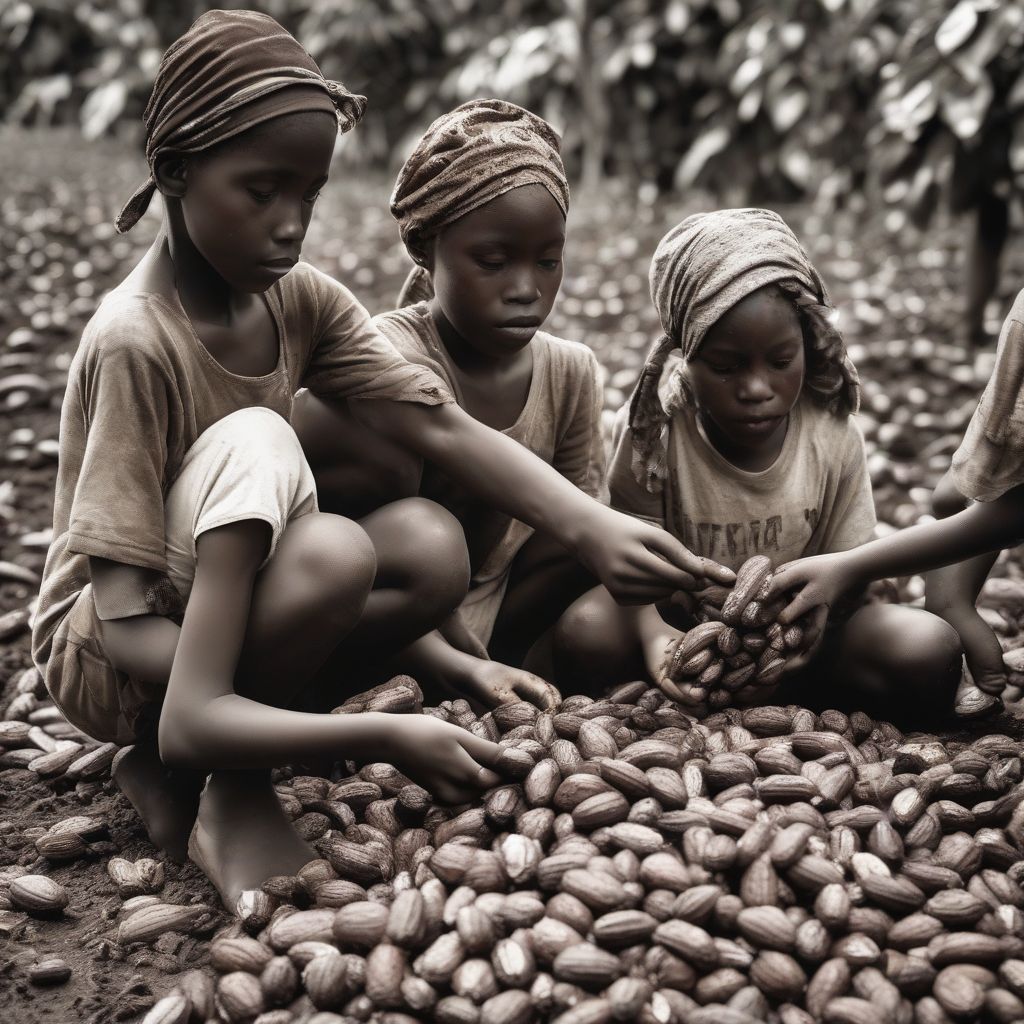Have you ever stopped to wonder about the hands that crafted your clothes or harvested the coffee you drink every morning? It’s an uncomfortable truth that child labor exists in the supply chains of many products we use daily. As a nutritionist and meal prep coach, I’m passionate about ethical sourcing and responsible consumption. That’s why I believe it’s crucial to be aware of the problem of child labor and learn how to make ethical choices. This article will equip you with the knowledge and tools to identify and avoid products made with child labor, empowering you to become a more conscious consumer.
Understanding the Complexity of Child Labor
Before we dive into how to identify products made with child labor, it’s essential to understand the multifaceted nature of this issue. Child labor isn’t merely children working; it’s exploitative labor that deprives children of their childhood, potential, and dignity. This can include:
- Hazardous work: Work that directly endangers a child’s health, safety, or morals, such as mining, construction, or working with dangerous chemicals.
- Interference with education: Work that prevents children from attending school or forces them to drop out.
- Trafficking: Children forced to work in exploitative conditions, often far from home and under threat or coercion.
Identifying Products at Risk
While it’s impossible to know for certain if every product is child labor-free, some industries and products are known to be high-risk. These include:
- Agriculture: Coffee, cocoa, tea, sugar, cotton, and tobacco.
- Mining: Gold, diamonds, cobalt, and mica.
- Manufacturing: Garments, footwear, electronics, carpets, and toys.
 Child Labor in Cocoa Farm
Child Labor in Cocoa Farm
Recognizing Red Flags
Look out for these red flags that might indicate child labor in a product’s supply chain:
- Unusually low prices: If a product is significantly cheaper than comparable items, it might indicate cost-cutting measures, including the use of child labor.
- Lack of transparency: Companies that are hesitant to disclose information about their supply chains might have something to hide.
- Country of origin: Certain countries have a higher prevalence of child labor. Check the product label or company website for this information.
Practical Tips for Ethical Shopping
Now that you know what to look for, here are some practical steps you can take to avoid supporting child labor:
1. Research Brands and Companies
Do Your Homework: Before buying from a brand, research their ethical policies. Look for information on their website about their commitment to fair labor practices, supply chain transparency, and third-party certifications.
Support Ethical Certifications: Look for certifications like Fair Trade, Rainforest Alliance, and UTZ. These organizations work to improve the lives of farmers and workers, including protecting children from exploitation.
2. Shop Local and Support Small Businesses
Connect with Local Producers: Consider buying directly from local farmers markets or shops that source their products ethically.
Support Fair Trade Businesses: Seek out businesses committed to fair trade practices. They ensure fair wages and safe working conditions for producers, reducing the risk of child labor.
3. Be a Conscious Consumer
Ask Questions: Don’t hesitate to ask retailers and brands about their efforts to combat child labor. Your voice matters!
Reduce Consumption: Consider buying less and focusing on quality over quantity. This reduces demand for cheaply produced goods, which often rely on exploitative labor practices.
4. Advocate for Change
Support Organizations Fighting Child Labor: Many organizations are working tirelessly to combat child labor. Consider donating to or volunteering with them.
Contact Your Representatives: Urge your government officials to support legislation and policies that promote fair labor practices and combat child labor globally.
Your Choices Have Power
While the fight against child labor is complex and requires systemic change, each individual has the power to make a difference. By making conscious choices about the products we buy and the companies we support, we can contribute to a world where every child is free to learn, play, and reach their full potential. Remember, every purchase is a vote for the kind of world we want to live in. Choose wisely and make a difference.
[amazon bestseller=”books about ethical consumption”]
